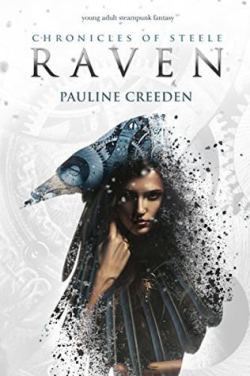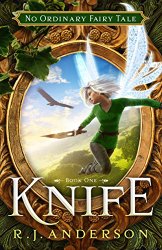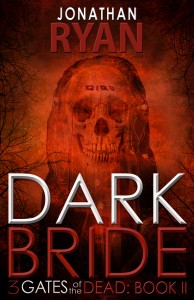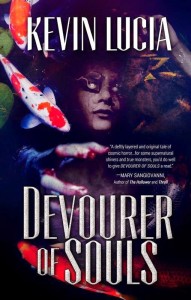This Summer, I’ll be teaching a workshop at Realm Makers entitled The Crossover Christian Novelist (you can find their Session Descriptions HERE). As part of my preparation, I asked a number of “crossover” Christian novelists several questions about writing for a general audience rather than a Christian audience. I’ll be sharing many of their responses during my workshop. Here’s a sampling of how some of the authors answered this question:
How do you navigate being a Christian, having a “biblical” worldview, and obeying the call to “let your light shine,” while writing fiction for a general market audience?

PAULINE CREEDEN: “Even while the world is inundated with “sex sells” and an exploding erotica market, there are still many who are looking for family friendly fiction that is clean and not full of the dirt and grime in the world. These readers are not even necessarily Christian. As a dark fantasy author, dirt and grime still make their way into my fiction, but there’s always a light shining at the end of the darkness. It is horror with hope. And that is what the world needs. Hope. And isn’t that what we’re supposed to point to, the hope and the light?”
TOM PAWLIK: “When Jesus told the story of the Good Samaritan, he was answering the question: “Who is my neighbor?” The story doesn’t mention God, and the only religious people in it are portrayed in a negative light. And with a Samaritan as the one who rescues the protagonist, it was likely very offensive to most of those listening. Jesus wasn’t giving a gospel message, even though we can see it in the story. There is nothing directly spiritual in the story yet it has become so iconic. Christian authors don’t necessarily have to write about God to show Him in our plotlines or through the actions of our characters. Each author needs to wrestle with the specifics of their genre and  subject matter, but I believe it’s possible to write about ghosts or aliens (things that don’t fit neatly in a biblical worldview) and yet still tell a story that upholds Christian virtues.
subject matter, but I believe it’s possible to write about ghosts or aliens (things that don’t fit neatly in a biblical worldview) and yet still tell a story that upholds Christian virtues.
It seems as if Christians want to rely on novels, movies or music to share the gospel with our unsaved friends, but we should be doing that in our everyday lives through our words and actions. Christian authors let their light shine by always striving for excellence in storytelling, not writing glorified gospel tracts.”
R.J. ANDERSON: “I don’t consider it my mission as an author to save people’s souls. I don’t believe I could do that even if I tried. That’s the work of the Holy Spirit, and He uses any number of people, situations, and influences to accomplish His purpose. My mission is to be a committed Christian writing the best fantasy stories I can write, out of the heart and spirit and wisdom that God has given me, and trust that somewhere along the way, He can and will use my writing—even if it’s just one book, or even one line—for His glory. And that’s why I write for the general market.”
JONATHAN RYAN: “One of the reasons I love the Bible is that it presents the world as it really is, not what we wish it to be. Sometimes, it gives us very ugly truths. People who get offended by Christian writers who show the world this way are saying more about themselves and their refusal to see the Bible’s portrayal of humanity. As long as a writer doesn’t glorify  evil, then no topic is off limits.”
evil, then no topic is off limits.”
JOY DEKOK: “It’s hard, but in staying true to the story, I’m also able to stay true to my faith via minor characters who shine brightly although my main character may or may not come to belief in Christ – the reason? Not everyone does. It’s a funny thing – the comments about the book that have come to me privately talk about the way my faith shines through even in the life of my not so likable main character.”
KEVIN LUCIA: “I guess it depends largely on your perspective. Are you planning Sunday School lessons for those in the church to learn from, or creating art for all mankind to appreciate and enjoy? In my opinion, art (and even that’s so subjective a field), has a much stronger impact when it works through subtleties and thematic treatments. At the end of the day, people are probably going to easily guess my worldview and beliefs, based on the subject matter I choose to write about. There may not be anything inherently “Christian” about any of my stories, there may not even be any Christians in the story, and the stories may also be pretty dark and damn depressing, but they dwell  consistently on topics of faith, belief in a higher power or the existence of a higher power, good vs. evil, right vs. wrong, or the inherent flaws that humanity – humanity on its own – suffers from: pride, anger, jealousy, vice, bigotry, hatred. To me, even if I use profane language or drug use or violence or even things of sexual nature to build characterization, if I’m highlighting humanity’s strengths – found in faith, belief, love, endurance, courage and bravery – or shining an uncompromising light on our weaknesses, I’m remaining true to my faith and my worldview.”
consistently on topics of faith, belief in a higher power or the existence of a higher power, good vs. evil, right vs. wrong, or the inherent flaws that humanity – humanity on its own – suffers from: pride, anger, jealousy, vice, bigotry, hatred. To me, even if I use profane language or drug use or violence or even things of sexual nature to build characterization, if I’m highlighting humanity’s strengths – found in faith, belief, love, endurance, courage and bravery – or shining an uncompromising light on our weaknesses, I’m remaining true to my faith and my worldview.”
* * *
I received lots of great feedback and wisdom from these and other authors about writing for the general market. Really, some terrific stuff. This is a small sampling of some of the material and ideas I’ll be discussing in my workshop this Summer. You can find out more about Realm Makers, its faculty and schedule, HERE. Hope to see some of you there!














Mike, this is good stuff… I hear what these guys are saying, and it is actually fulfilling the Great Commission. It is how we Christians live our lives — everything we say and do and react to situation — that point to Christ.
It’s how I was able to survive in the small town political world until I moved to Mississippi. God works in so many ways to reach so many different people. I so much appreciate what Pauline said because I don’t want to read all the “dirt and grime” either, which is why I stay with the Christian fiction and rarely read outside it.
If there were a rating system for books, it would save me a lot of money and time. Perhaps it would also give publishers and authors a true picture of what readers like.
You might consider writing up more about this after Realm Makers, for those who can’t make it. It has the makings of a good discussion.
General market — I am doing that kind of anthology right now but when I do Tabloid Purposes and its sequels it’s got this underground attitude to it; but how do you write that kind of thing to still remind them that Christians might want to read it? Gothic Horror is a very harsh climate and one of the most unforgiving of the horror genres — especially when you have the brutal climates of urban fiction thrown in the mix. Christians if they want to do very well in this field; Mike will know exactly what I am talking about — take cues from urban fiction; the language is part of the genre. The heavy hitting profanity is part of the modern horror experience; the blood and ideologically sensitive material but just do something that eats out their intestines in Technicolor as Robert Raven once wrote. It’s all fun and games until someone loses an eye or testicle.
I’m looking forward to this seminar and also the Theology of Horror one. Thanks so much for serving as faculty this year!